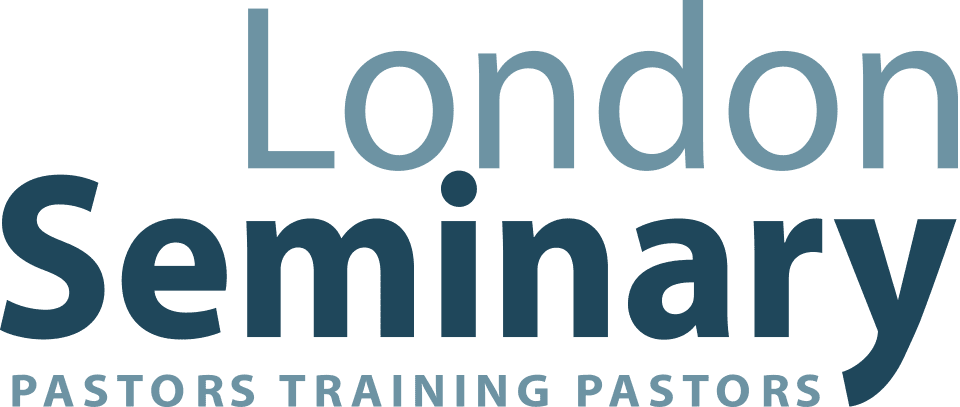Matthew Mason is our new Tutor in Ethics (see the previous post here). It is a pleasure to publish his first post, starting with the heart of the matter for our life and doctrine…
‘We live not at the seedtime but at the harvest of the modern age, when we have the privilege of seeing what is its true character more clearly than those who have gone before us. And we have to think of the next seedtime, if one is given to us, and ask what we shall sow.’ (Oliver O’Donovan)1
‘Do not be deceived: God is not mocked, for whatever one sows, that will he also reap. For the one who sows to his own flesh will from the flesh reap corruption, but the one who sows to the Spirit will from the Spirit reap eternal life.’ (Gal. 6:7-8)
As Christians, as pastors, and as churches, we find ourselves confronted by many complex ethical challenges. An alphabetical smattering from the news of recent weeks might go like this: abortion, abuse scandals, anti-semitism, assisted suicide, cancel culture, celebrity suicide, cultural appropriation, digital tech, the environment, immigration, knife crime, LGBTQ+ people and issues, masculinity, #MeToo, misogyny, online grooming, people trafficking, polarised political discourse, pornography, poverty, rape, religious freedom, slavery, sex trafficking, sexual discrimination, surveillance, and the list goes on…
Behind the pressing ‘issues’ that we face, stands the more fundamental and all-encompassing question of what it means to live a life that is pleasing to God. Where is the good life to be found, and what does true human flourishing entail? What is our highest good, and how do we live in accordance with it? Is there such a thing as human nature, or are we free to craft ourselves however we prefer? Mostly importantly of all: (how) does this relate to the gospel of Jesus Christ?
Underlying all the stories in our news feeds are competing assumptions (often hidden) about what it means to be truly human, competing accounts of human dignity and equality, responsibilities and rights, freedom and fulfilment. Many of these accounts have roots that stretch back centuries. Some of those roots have grown from Christian seeds; others come from seeds that are hostile to the gospel. Either way, it is important to recognise with Oliver O’Donovan that, for all the Christian influences that linger, we do indeed live at ‘the harvest of the modern age.’ O’Donovan was writing in 1984; how much louder do his words ring out today!
This means that, as part of our ministry of God’s Word, we do well to ask: What is the harvest of modernity that we see around us? What weeds—with fruits and shoots and roots—need uprooting from our ethical garden? What better harvest could we hope for in future generations? What seeds are we sowing in our own lives and communities? What seeds are preachers sowing in the lives of their congregations? What seeds are parents sowing in the lives of their children? Will we sow according to the flesh, or according to the Spirit? Will we reap righteousness and life, or unrighteousness and death?
These are urgent questions. But wonderfully, the wisdom of the only wise God (Rom 16:27) is freely available to us—in his Son who embodies all wisdom and understanding (Col 2:3); through his Scriptures that make wise the simple (Ps 19:7); by the Spirit of wisdom and revelation who enlightens our hearts (Eph 1:17). Through the ministry of his apostles and prophets, Divine Wisdom speaks to make us wise and to equip us for every good work (2 Tim 3:17). By the Spirit of counsel and might, we appropriate this wisdom, putting sin to death (Rom 8:13) and living renewed lives of faith, hope, and love—lives that are from God, through God, and to God as his reconciled creatures.
Two millennia of instruction from ministers of God’s Word is also ours in the communion of saints. Governed by Scripture, our fathers and mothers in the faith still bear rich and eloquent testimony to help us map, enjoy, and walk in Wisdom’s pathway through the world.
For most of history, the Church’s theologians assumed that doctrine and ethics belong together, and that both are indispensable aspects of our ministry of God’s Word.2 Doctrine testifies to who God is and what he has done; ethics describes what God would have us do. Doctrine testifies to God’s covenant commitment to us—he is our God; ethics describes our covenant commitment to God—we are his people. Doctrine testifies to the unsurpassable riches of God’s love for us; ethics describes the shape of our love for him. Doctrine calls forth faith; ethics traces the paths of hope and love.3
Suitably fortified by faith and hope and love, deeply grounded in the Wisdom of the Scriptures, humbly listening to the voices of the saints, patiently engaging the best and worst of human thought, theological ethics does not shy from the moral and existential challenges of our day. Instead—for the honour of God’s Name, in service of his Church, and for the life of his world—it delights to map the curves and contours, cracks and crevices of this life that together we may travel safely to the next.
:: :: :: :: :: ::
One example of the help that I think theological ethics can bring to the vexed question of what it means to be male and female can be found here.4
______________
[1] Begotten or Made? (Oxford: Oxford University Press, 1984), 12.
[2] A small, but representative sampling includes Augustine, On Christian Teaching; Enchiridion on Faith, Hope and Love; City of God; Gregory the Great, Moralia in Job; Thomas Aquinas, Summa Theologiae; Martin Luther, The Freedom of a Christian; Philip Melanchthon, Common Places; John Calvin, Institutes; John Owen, The Mortification of Sin; Wilhelmus à Brakel, The Christian’s Reasonable Service; Petrus van Mastricht, Theoretico-Practical Theology—to say nothing of the great Reformation and Post-Reformation catechisms. The connection between doctrine and ethics was largely sundered in the modern period; Barth’s Church Dogmatics (with all its strengths and weaknesses) provides a magnificent exception, where dogmatics and ethics are carefully and richly held together. More recently, there has been a very encouraging renewal of genuinely theological ethics; two particularly important representatives of this are Oliver O’Donovan and John Webster; Resurrection and Moral Order is, to my mind, still the place to start with O’Donovan, though it’s not for the faint of heart; Webster has some stunning essays on ethical subjects in The Domain of the Word and also in God Without Measure, Volume II: Virtue and Intellect. In addition, the recent publication of the first volume (of three) of Herman Bavinck’s recently discovered Reformed Ethics, as a companion to his majestic Reformed Dogmatics, promises to be very fruitful indeed.
[3] See Bavinck, Reformed Ethics. Volume 1: Created, Fallen and Converted Humanity, Ed. John Bolt (Grand Rapids: Baker Academic, 2019), 22.
[4] Matthew Mason, ‘The Authority of the Body: Discovering Natural Manhood and Womanhood’, Bulletin of Ecclesial Theology 4.2 (2017): 39-57.





